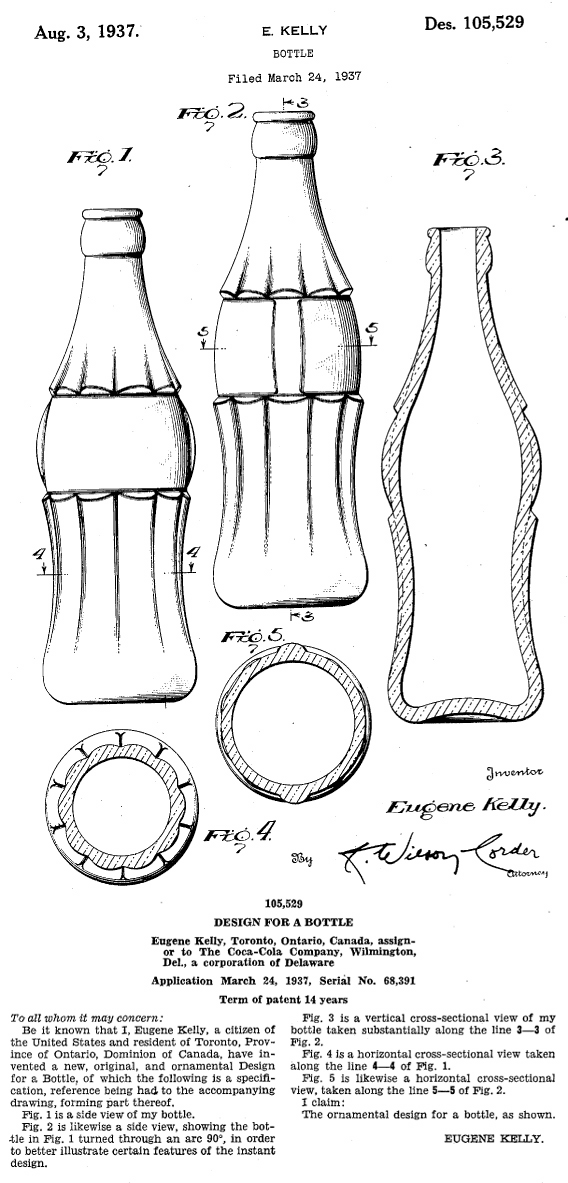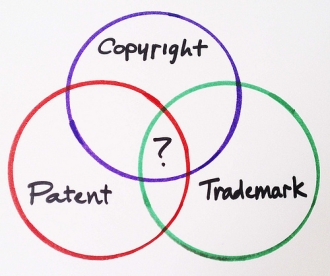Resources
Firm Insights
HUSH! Can You Keep a “Trade” Secret?
Let’s play a word association game. I say “Intellectual property.” Your three most likely responses are: “patent,” “copyright,” and “trademark.” The federal government agrees. It has enacted statutes and created government agencies to guard and enforce your rights in those special forms of property. Indeed, the protection for patents and copyrights dates back to the Founding Fathers, who incorporated it into Article I, Section 8 of the United States Constitution.
But until recently, the most valuable form of intellectual property for most companies—and the most endangered—has had little federal recognition or protection. That’s about to change. But first, some background.
Trade Secrets and Coca-Cola

Iconic Coke Bottle Shape
The Coca-Cola Company is the perfect example of a company with an astonishingly broad and valuable portfolio intellectual property. The U.S. Patent and Trademark Office lists hundreds of registrations for a wide variety of utility and design patents in the company’s name. So, too, Coke owns more than 500 trademark and trade dress registrations, including every conceivable variation of Coca-Cola, Cherry Coke, Coke, and Diet Coke, along with what many consider the most famous trade dress in America—Registration No. 1057884, which turns 100 this year and covers the iconic shape of the bottle.
And then there are the Coca-Cola copyrights, which include some of the best known print and television advertisements of the last century. Perhaps the most celebrated of those copyrighted creations, the so-called “Hilltop” ad from 1971, was used as the closing scene in the final episode of the television series Mad Men.
But one of Coca-Cola’s most valuable intellectual properties can’t be patented, can’t be copyrighted, and can’t be trademarked. Reportedly, it is kept in a lockbox in a secret location within the company’s Atlanta headquarters. What’s inside that lockbox? The recipe for Coca-Cola. For more than a century, Coke’s secret recipe has remained one of the most heavily guarded trade secrets in the world.
And Coca-Cola is hardly alone. Trade secrets are among the most valuable intellectual property assets of every single company in America. And they’re also the most endangered species of intellectual property.
What is a trade secret?
As the name suggests, it is a piece of confidential information that provides an enterprise with a competitive edge. Trade secrets include everything from marketing plans and customer lists to financial information (pricing, overhead, profit margins) and manufacturing processes. Think of the third base coach making all those mysterious hand signals to the batter and the runner on first base. Those hand signals are the team’s trade secrets.

Caricature of former Braves coach Bobby Dews. Courtesy of gtalumni.org
But as the name indicates, in order for a trade secret to be a trade secret, it has to be secret. Once publicly disclosed, it is—quite literally—no longer a trade secret.
Up until recently, however, trade secrets have been the red-headed stepchildren of intellectual property law. While patents, copyright, and trademarks all have federal protection, the only civil remedy available for trade secret theft is at the state level. Given the lack of uniformity in state law, litigating trade secret cases in different jurisdictions could be cumbersome, expensive, and ineffective.
Maybe a state-by-state system of protection made sense in a simpler era of business, but these days Coca-Cola is only one of tens of thousands of enterprises that operate in all fifty states. These companies need a single, comprehensive federal statutory scheme that will provide them with, among other things, a clear definition of what qualifies as a “trade secret,” a set of guidelines as to how to guard those trade secrets in a manner that would qualify them for protection, and a set of enforcement tools that have uniform application throughout the nation.
Defend Trade Secrets Act of 2016
That day has finally arrived!. For several years now, Congress has been debating legislation creating a federal civil cause of action for misappropriation of trade secrets. In early April of this year, the Senate unanimously passed the Defend Trade Secrets Act of 2016 (“DTSA”). Three weeks later, the House of Representatives passed the DTSA. And earlier today, President Obama has signed that bill into law.
What will the DTSA mean for companies throughout the nation?
They will soon be able to pursue claims for trade secret misappropriation under a uniform federal law in a federal court, just as they can for other forms of intellectual property (i.e., patent, trademark, copyright). It also means that they will be able to seek a powerful new seizure order to recover misappropriated trade secrets—and they will be able to do so via an emergency ex parte hearing. The DTSA provides that in “extraordinary circumstances” a court may order the civil seizure of property “necessary to prevent the propagation or dissemination of the trade secret that is the subject of the action.” That court order will be served by a federal law enforcement officer, not a party to the case.
And perhaps most important, passage of the DTSA will serve as a reminder that trade secrets are a valuable (and vulnerable) form of intellectual property that need to be protected, and that means you need to ensure that your company has the proper protection plans in place to have the full protections and benefits of this new federal law.
In the interim, keep your grandmother’s recipe for her legendary apple strudel in that safe deposit box!
The choice of a lawyer is an important decision and should not be based solely upon advertisements.
Let's Work Together
If you have questions, we’re ready to help you find the answers.
Newsletter Sign-up
Join our mailing list and stay up to date with Capes Sokol!
By clicking the “Subscribe” button you
agree with our Terms and Conditions.

